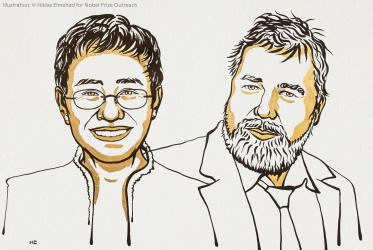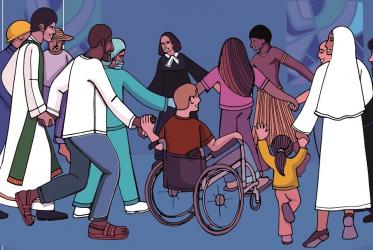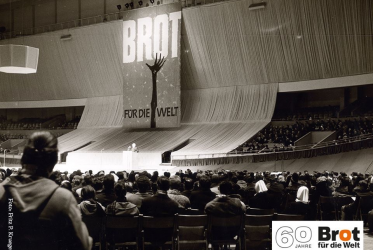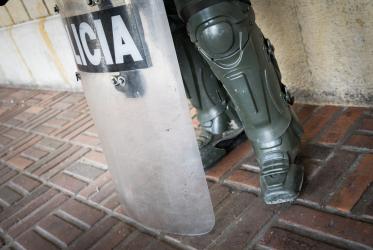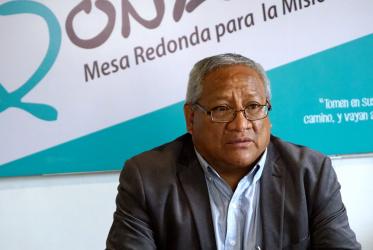Displaying 1 - 20 of 87
WCC congratulates 2021 Nobel Peace Prize laureates
14 October 2021
Igrejas brasileiras clamam por justiça racial transformadora
24 November 2020
Brazilian churches call for transformative racial justice
23 November 2020
Ex-presidente Lula visita Centro Ecumênico em Genebra
06 March 2020
WCC publishes two new Bible studies penned by authors from Colombia
24 February 2020
Chilean crisis sparks churches’ alarm and concern
24 October 2019

